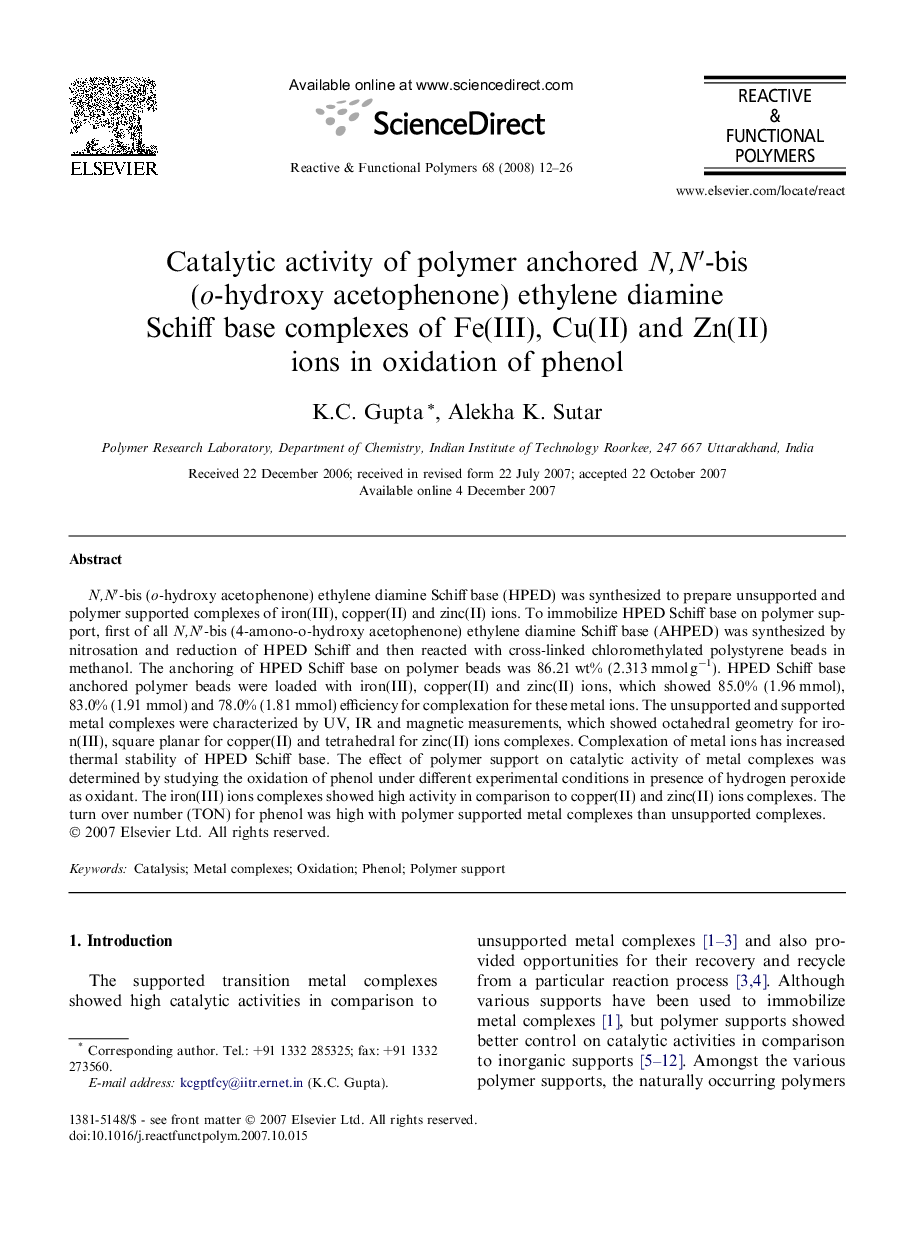| Article ID | Journal | Published Year | Pages | File Type |
|---|---|---|---|---|
| 5211158 | Reactive and Functional Polymers | 2008 | 15 Pages |
N,Nâ²-bis (o-hydroxy acetophenone) ethylene diamine Schiff base (HPED) was synthesized to prepare unsupported and polymer supported complexes of iron(III), copper(II) and zinc(II) ions. To immobilize HPED Schiff base on polymer support, first of all N,Nâ²-bis (4-amono-o-hydroxy acetophenone) ethylene diamine Schiff base (AHPED) was synthesized by nitrosation and reduction of HPED Schiff and then reacted with cross-linked chloromethylated polystyrene beads in methanol. The anchoring of HPED Schiff base on polymer beads was 86.21 wt% (2.313 mmol gâ1). HPED Schiff base anchored polymer beads were loaded with iron(III), copper(II) and zinc(II) ions, which showed 85.0% (1.96 mmol), 83.0% (1.91 mmol) and 78.0% (1.81 mmol) efficiency for complexation for these metal ions. The unsupported and supported metal complexes were characterized by UV, IR and magnetic measurements, which showed octahedral geometry for iron(III), square planar for copper(II) and tetrahedral for zinc(II) ions complexes. Complexation of metal ions has increased thermal stability of HPED Schiff base. The effect of polymer support on catalytic activity of metal complexes was determined by studying the oxidation of phenol under different experimental conditions in presence of hydrogen peroxide as oxidant. The iron(III) ions complexes showed high activity in comparison to copper(II) and zinc(II) ions complexes. The turn over number (TON) for phenol was high with polymer supported metal complexes than unsupported complexes.
